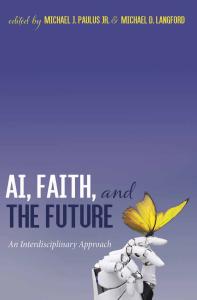A recent paper in the Proceedings of the National Academy of Sciences observes:
In humans, information flows were initially shaped by natural selection yet are increasingly structured by emerging communication technologies. Our larger, more complex social networks now transfer high-fidelity information over vast distances at low cost. The digital age and the rise of social media have accelerated changes to our social systems, with poorly understood functional consequences. This gap in our knowledge represents a principal challenge to scientific progress, democracy, and actions to address global crises.
Carl Bergstrom, one of the authors, says that a 2019 draft of this paper “said something along the lines of ‘Imagine that [a] pandemic hit and people wouldn’t follow public health advice because of misinformation spread online. We’d be *really* screwed then.’”
Indeed. Moreover, others argue that efforts to leverage technology to respond to the COVID-19 pandemic were “doomed to fail because tech platforms have failed over the past few decades to make their tools trustworthy, and lawmakers have done little to hold these companies accountable. People cannot trust the interfaces they interact with, the devices they use, and the systems that power tech companies’ services.”
The challenges of our present technological moment were evident before the pandemic, but the pandemic and the various crises that accompanied it have transformed our current information revolution into an information apocalypse. By apocalypse I mean both a revelatory event, which uncovers hidden or deeper truths, as well as a catastrophic event. The information revelations about our information revolution, constructive as well as cataclysmic, have been present for some time. We’ve seen them in failed techno-utopian dreams, in fearful dystopian nightmares, and even in more realistic visions. While some of us may have comforted ourselves with positive revelations about the benefits of our current revolution, now it is impossible to deny that we are not stewarding our emerging information and technological environment well. Our current information apocalypse is increasingly a negative one.

So what does our information apocalypse reveal? That we need to return to some fundamental questions about epistemology, eschatology, and ethics—or, as Immanuel Kant presents these in Critique of Pure Reason: What can we know? What may we hope? What should we do?
The epistemological challenge, about how we know what we know, must address mis/dis/mal-information and how attention is apprehended and manipulated for ends that do not align with our desires or intentions (beyond our most basic drives and instincts).
The eschatological challenge, about our ultimate hopes and ends, includes engaging in broad and robust discussions about better futures not limited by predictable patterns and technical optimization.
The ethical challenge, about how we collectively create a juster world, is about preserving our autonomy, moral responsibilities, and agency in an increasingly automated environment.
We have experienced previous information revolutions, and as a species we have gained significant insights from each. The first, associated with the emergence of our species, enabled us to work with information reflectively and not just reflexively. One challenge we face today concerns how technological automation threatens the dis-automatization and attention we realized independent from natural selection—a reduction of desire to drive.
A second information revolution, following the development of cities, enabled us to create information agencies (political, economic, religious, and other institutions) to realize shared goals. These forms of structural agency can—and have often become—oppressive, if humans do not regularly intervene to correct systemic flaws and failures. Without such interventions, these mechanistic systems will inspire revolt.
A third information revolution, following the invention of writing, came with the creation of information artifacts—new information communication technologies—for the discovery and sharing of knowledge. These artifacts required information and attention management systems, such as libraries and cultural practices, to select and mediate information. And while libraries and other cultural filters still exist, in our current information environment these can be easily ignored as individuals seek, find, interpret, and share information (and its negations) independently.
As we negotiate a fourth information revolution related to automated information processing, our unique challenge is to discern how our shared history of reflective attention, structural agency, and information communication technologies can help us integrate AI into our lives in ways that enhance wisdom, hope, and justice.












